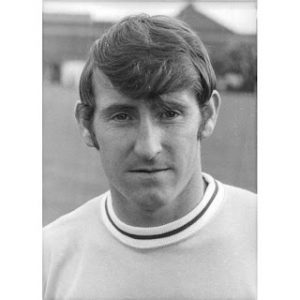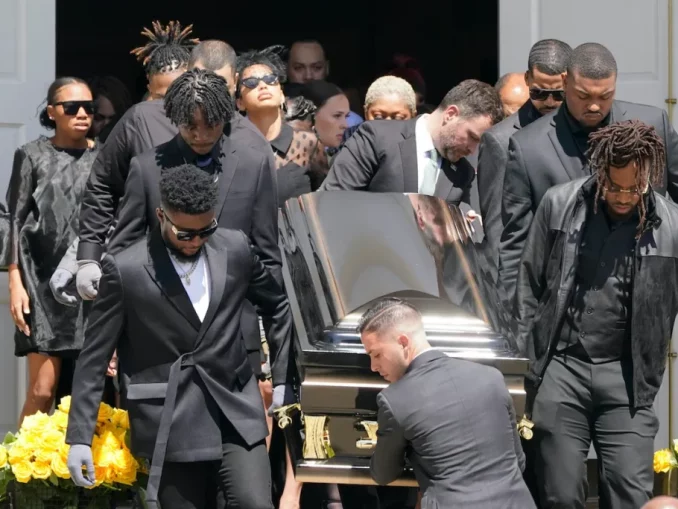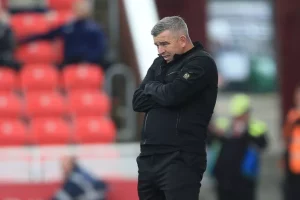
**Ronnie Rees RIP (04/04/1944 – 29/10/2023)**
Coventry City fans who remember the 1960s will be saddened to learn of the passing of former winger Ronnie Rees. At just 18 years old, Jimmy Hill promoted him to the first team, where he quickly became a crucial player in the Third Division and Second Division championship teams in 1964 and 1967. Rees thrived during an era when wingers were highly valued, showcasing remarkable speed, dribbling skills, excellent crossing, and a powerful shot. He was one of the most beloved players of the Jimmy Hill era, playing 262 games for the Sky Blues, making him 25th on the all-time appearance list. Additionally, he scored 52 goals in his 5.5 seasons at Highfield Road, placing him 16th in the club’s all-time scorers and the highest-scoring winger in the club’s history.
Ronnie was born and raised in Ystradgynlais, a small Welsh town 15 miles north of Swansea. He was discovered playing for Merthyr Boys and joined Coventry City straight from school as an apprentice, performing various tasks like sweeping terraces, cleaning first team boots, and playing for the ‘A’ or ‘B’ team on Saturdays. Despite being part of a youth team with future stars Bobby Gould and Dietmar Bruck, their Youth Cup campaign in 1961-62 ended with a 9-1 defeat to Aston Villa’s under 18s, with Ralph Brown scoring seven goals. By the end of the 1961-62 season, Rees had played 26 reserve games and scored 3 goals, primarily on the right wing, but he wasn’t considered close to the first team. In the 1962 off-season, new manager Jimmy Hill signed a completely new forward line: Willie Humphries, Hubert Barr, Terry Bly, Jimmy Whitehouse, and Bobby Laverick. Though awarded a professional contract, Ronnie’s first team prospects appeared limited.
Of the five new forwards, only Laverick, a former Everton and Brighton player, struggled initially. After just four games, Hill replaced Laverick with Roy Dwight but was still dissatisfied with the left wing. On 15 September 1962, Ronnie was called up for a home Division Three game against Shrewsbury. In front of 14,000 fans, he impressed as the Coventry Telegraph’s Nemo reported: ‘Rees revealed a refreshing directness that should have acted as a stimulant to his colleagues’. The game ended 0-0.
He retained his spot three days later in a 3-1 victory over Bradford Park Avenue, earning more praise from Nemo: ‘He beats his man often like a veteran, has poise on the ball, and it is a rare occurrence for a pass to go astray. From the start he shows a propensity to shoot on sight’. Ronnie was now a permanent fixture in the team, and in his fifth game, he scored his first goal in a 3-2 League Cup win against Second Division Swansea. Determined to prove Swansea wrong, he shone as City’s star player, netting a 25-yard ‘dipping’ shot. Nemo described him as ‘irrepressible and unlucky not to score a second goal near the end’.
After recovering from gastric flu, he returned on 10 November in a 3-0 win over Wrexham and remained ever-present for the rest of the season. He didn’t experience a defeat until March when City’s FA Cup run ended against Manchester United. Within three months of his debut, he earned the first of seven Wales under-23 caps and scored twice in a 5-1 win over Northern Ireland under-23s in February 1963.
City missed promotion due to the Cup run and harsh winter, but the team won the division the following year. Ronnie and captain George Curtis were the only ever-present players, and his 15 goals were only surpassed by George Hudson and Ken Hale. His highlight was a hat-trick in the 8-1 thrashing of Shrewsbury Town at Highfield Road.
Ronnie adapted easily to Second Division football, missing only one game in 1964-65, scoring nine goals, and earning his first full cap for Wales in a 3-2 victory over Scotland in Cardiff. He impressed playing alongside Welsh legends like John Charles, Ivor Allchurch, and Cliff Jones, setting up two goals for Ken Leek, and maintained his spot for seven more internationals that season, including a Wembley match against England and World Cup qualifiers in Florence and Moscow. City consolidated their position, finishing 10th, but in 1965-66 they mounted a serious promotion challenge with Ronnie central to their efforts. After Willie Humphries left, versatile Ronnie moved to the right wing to accommodate Dave Clements. Again, he missed only one game, scored nine goals, and earned eight more Wales caps, including two games against Brazil in an end-of-season tour of South America, facing stars like Garrincha, Gerson, and Tostao.
get more related contents lifestyleroom.net



